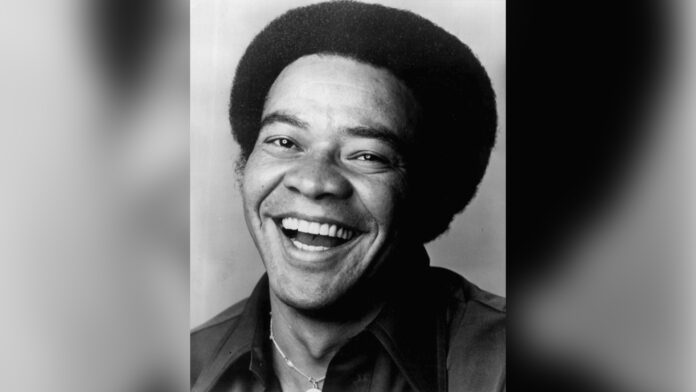Withers passes away at age of 81
It’s not every day that a middle-aged aircraft toilet mechanic decides they are going to try their hand at becoming a musician, and even less often that it actually works. But for a 32-year-old Navy veteran from the coal mining town of Slab Fork, West Virginia, that’s exactly what happened — and the world is better off for it. Bill Withers, whose songs “Ain’t No Sunshine,” “Use Me” and “Lovely Day,” among others, continue to delight anyone with a soul. I was saddened to learn that this timeless, straight-talking legend passed away on March 30 at the age of 81.
Withers, the youngest of six children, came from modest means in coal country where he was an outsider — not by choice, but by default. Born with a stutter, he was both the butt of jokes from his peers and the ire of impatient folk, berating him with remarks like, “Just spit it out already” (as if he had any choice in the matter). Withers found solace in his family and “learned to love through [a] fine old lady,” — his grandmother who helped raise him when, at the age of 13, his father passed away from a heart attack. In the documentary “Still Bill,” Withers fondly recalls that his grandmother’s church was filled with his favorite kind of singing: spontaneous singing. Whether intentional or not, this effortless quality seeped into Withers’ musical repertoire.
During his nine-years in the Navy, while stationed in Guam, Withers began playing music as a way to pass the time. Returning from Guam, he worked at Weber Aircraft installing toilets. In a moment of clarity, Withers decided to record a tape and try his hand in the music biz. He played his tape to pianist and “guardian angel” Ray Jackson of the 103rd Street Watts Band, where it then made its way through the grapevine and finally landed on a desk at the Los Angeles-based label Sussex Records. They immediately signed him to a record deal.
From there, he began performing and touring with a couple of Jackson’s bandmates, including Ray Jackson, James Gatson, Melvin Dunlap and Benorce Blackman — a group of audaciously talented musicians worthy of their own signatures in the history books of soul, funk and rhythm ‘n’ blues. Despite his newfound success, Withers, being the sensible man he was, refused to leave his day job. After a performance on The Tonight Show Starring Johnny Carson, Withers’ popularity swelled and his songs filled the radio waves alongside the likes of Sly and the Family Stone, Al Green and Led Zeppelin.
Although Withers gradually evolved into a household name, he never truly embraced superstar status. He was satisfied to play music and make a good living doing it, preferring to opt-out of the industry hullabaloo. His laidback persona shone through his performances. Withers was probably best known for his abilities with pen in hand, writing songs that sheared off any hint of malarkey and cut straight to the heart. Withers said during his acceptance speech for the Rock and Roll Hall of Fame that “every kind of music has its own constituency,” and yet his own reach knew no bounds. He managed to tap into a spectrum of emotions from sorrow to safety. Honesty inherent in his technique, he wrote about everyday life and love — not just for a lover, but also for a friend and beloved relative. His songs were by no means engineered for the masses, but seemed to connect with most all the same.
Despite his rise to stardom, he remained true to himself. When the business and the Artists and Repertoire (or in Withers’ words “antagonistic and redundant”) staff tried to bend him to fit a mainstream mold, he put his foot down and walked away on his own terms. From that point on, he slowed down the pace, shifting his energy and time to enjoy the company of friends and family.
This past summer, at a camp for children affected by different forms of grief, I was huddled with kids who were given the opportunity to share whatever was on their mind. By the end, just when all involved were either nearing or already in tears, Withers’ “Lean on Me” came through the stereo. Every kid and counselor from the ages of six to 23 stopped, sang and swayed together. Withers once remarked that all he wanted was to make simple but profound songs. Withers turned a few solemn chords on the piano, three verses and a chorus into an instant classic. “Lean on Me,” released over 48 years ago, is still admired as a paragon of amity and hope for a better tomorrow.
There is a dark irony in the time of Withers’ passing — a time in which we crave the solidarity and love infused in his music now perhaps more than ever before. At the same time, it is also a moment in which his music’s grace and power rises to its highest ebb. We are all due to crank up some Withers and pay our respects to the tenderness and integrity of both the sound and the man.
Written by: Andrew Williams — arts@theaggie.org




